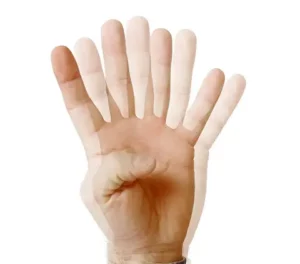Imagine this: You just had eye surgery to fix a squint, hoping for clear vision. But surprise, now you see double! It’s confusing and kind of a downer, right? Well, guess what? This blog is like your friendly map through the double vision maze. We get the head-scratching, worried moments. But don’t stress! We’re here to untangle the mystery of why it happens, when it’s normal, and what you can do about it. Join us as we chat about double vision after squint surgery. We’ll keep it simple, answering your questions and giving you easy steps to tackle the situation. No more double trouble – let’s figure it out together!
Contents
- 1 Understanding the Causes of Double Vision Post Squint Surgery
- 2 Navigating the Timelines: What to Expect and When to Worry
- 3 Proactive Steps: What You Can Do to Alleviate Double Vision
- 4 Spotting Red Flags: When Double Vision Requires Immediate Attention
- 5 So, How Long Does This Double Vision Last After Surgery?
- 6 Conclusion
Understanding the Causes of Double Vision Post Squint Surgery
Ever wondered why double vision pops up after squint surgery? Let’s uncover the reasons:
- Muscle Adjustment: Your eye muscles are getting used to their new, improved positions. This adjustment period might bring temporary double vision.
- Healing Process: Just like a superhero healing from a battle, your eyes need time to heal. During this superhero healing, double vision might make a cameo.
- Brain Teamwork: Your eyes and brain are like the dream team, working together for clear vision. Sometimes, they need a bit of time to sync up perfectly after surgery.
- Prescription Changes: Your glasses or contact lens prescription might need a little tweak. Double vision could be a sign that your eyes are adjusting to their new, sharper focus.
Navigating the Timelines: What to Expect and When to Worry
- First Few Days: Initial Adjustments
- Double vision might step onto the scene as your eyes adapt. It’s a common part of the early recovery script.
- Early Week: Settling In
- Double vision may linger, but it’s often just your eyes finding their balance. Give it time, like a steady rehearsal.
- Second Week to Fourth Week: Progress Check
- By now, your eyes and brain should be working together smoothly. If double vision still lingers, it’s worth a check-in with your eye specialist.
- After One Month: Assessing Concerns
- If double vision persists, it’s time for a closer look. Reach out to your eye specialist for a thorough evaluation and adjustments if needed.
Stick to the timeline, and if anything seems off, your eye specialist is the go-to guide for a smooth recovery journey.
Proactive Steps: What You Can Do to Alleviate Double Vision
 Navigating double vision after squint surgery may feel like a puzzle, but fear not—we’ve got a toolkit of proactive steps to help you put the pieces together for clearer vision. Here’s your guide:
Navigating double vision after squint surgery may feel like a puzzle, but fear not—we’ve got a toolkit of proactive steps to help you put the pieces together for clearer vision. Here’s your guide:
- Eye Exercises for Focus: Begin with simple eye exercises, like following the movement of an object with both eyes. These exercises enhance coordination and gradually reduce double vision. Make them a part of your daily routine for a focused visual workout.
- Cover-Uncover Technique: Master the cover-uncover method—cover one eye for a few seconds, then uncover it, repeating the process with the other eye. This exercise aids in retraining your eyes to work together, minimizing the chances of double vision.
- Follow Your Specialist’s Advice: Your eye specialist is your trusted guide. Adhere to their instructions diligently, including any prescribed eye drops or medications. Consistent adherence is the key to a smoother recovery journey.
- Rest and Relaxation: Give your eyes the downtime they deserve. Adequate rest, especially in the initial days post-surgery, is crucial. Avoid straining your eyes with prolonged screen time or extensive reading.
- Stay Hydrated: Hydration is your eye’s best friend. Keep sipping water throughout the day to maintain optimal eye health and alleviate any discomfort related to dry eyes.
- Healthy Nutrition: Fuel your recovery with a nourishing diet. Incorporate foods rich in vitamins and nutrients essential for eye health, such as leafy greens, carrots, and fish.
- Regular Follow-ups: Don’t skip the checkpoints. Schedule and attend your follow-up appointments with your eye specialist. These regular check-ins allow them to monitor your progress and make necessary adjustments to your treatment plan for optimal results.
Consider these proactive steps as your personalized roadmap to a smoother recovery journey, guiding you towards minimized and coped-with double vision.
Spotting Red Flags: When Double Vision Requires Immediate Attention
While some double vision is expected post-squint surgery, being vigilant about certain signs can be crucial. Here’s a guide on when to hit the medical alarm button:
- Sudden and Severe Double Vision
If double vision intensifies suddenly and becomes severe, it’s a red flag. Rapid changes could indicate an issue that needs prompt attention. - Persistent Double Vision Beyond the Expected Timeline
While some double vision is normal in the initial days, if it persists beyond the expected recovery timeline, it’s time to raise concern. Your eyes might be signaling something more complex. - Pain or Discomfort Accompanying Double Vision
If you experience pain or discomfort alongside double vision, it’s a warning sign. Your eyes should be on the mend post-surgery, and any added discomfort needs swift evaluation. - Abrupt Changes in Vision Clarity
Double vision accompanied by sudden changes in overall vision clarity is a cause for concern. It could signify issues that require immediate professional assessment. - Eye Movement Limitations
If your eyes struggle to move in all directions or if you notice limitations in their movement, it’s time to seek prompt medical attention. Restricted eye movement could indicate underlying concerns. - Increased Sensitivity to Light
Double vision coupled with heightened sensitivity to light may point to issues that need urgent evaluation. Any abrupt changes in light sensitivity warrant attention. - Eye Fatigue That Doesn’t Subside
While some fatigue is expected during recovery, if it persists and interferes with daily activities, it’s a signal to consult your eye specialist promptly.
Remember, your eyes are excellent communicators. If they’re signaling distress beyond the norm, don’t hesitate to seek immediate professional help. Swift action ensures a timely resolution and safeguards your visual health.
So, How Long Does This Double Vision Last After Surgery?
The duration of post-squint surgery double vision is akin to a temporary visitor—often making an appearance in the initial days and weeks. Generally, expect this visual tag-along to linger for a short duration, with many experiencing a significant improvement within the first few weeks. The majority find themselves bidding farewell to double vision as their eyes and brain seamlessly sync up to the new alignment. While individual timelines may vary, the consensus is a reassuring trend towards clearer, singular vision emerging within the early stages of recovery.
Conclusion
As we wrap up our exploration of double vision post-squint surgery, remember that the road to clear vision is often a journey of adjustment and adaptation. While double vision may briefly join the scene, the good news is it’s usually a transient guest. Patience and proactive measures will be your allies, ensuring a smoother recovery.
If you find yourself on the squint surgery consideration path, fret not! At EyeMantra, our dedicated team is here to guide you. Don’t let concerns linger; take the first step toward clarity. Book your free consultation now by calling 9711116605. Your vision deserves the best, and we’re here to make it happen.



